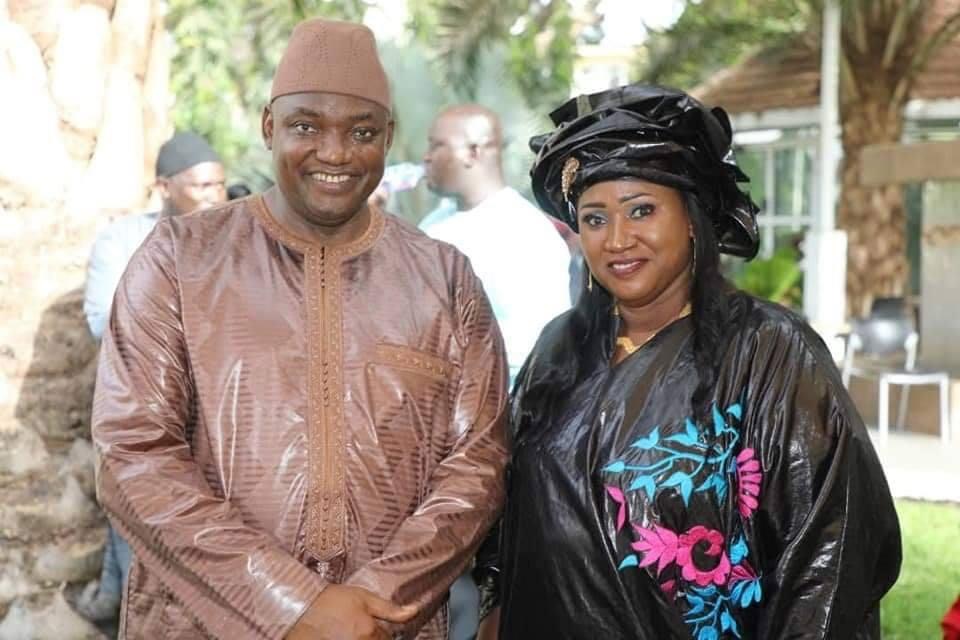
Part I
A few days ago, the newsprint and social media went agog with screaming headlines of one of National People’s Party (NPP) women coordinator or mobiliser Ms. Ramou Sabally’s “official”defection from the ruling NPP to the opposition United Democratic Party (UDP).
This action, via subsequent developments hitherto, has elicited exolments and acclamation and criticism and condemnation from various quarters within the country.
Besides the news of unceasing escalation of corruption political culture and the Kanifing Municipal Council office hobbled in ethics and corruption inquiries in the country being perpetuated rising every hour, the women coordinator’s defection has also been trending, featuring prominently in the front burner of political discourse within the polity.
Understandably, while the UDP is the happier of the two political parties in this particular situation, like the one of their most important “Connamdo” or “Party Amazon” and now belongs to their fold, the ruling party has been in a dysphoric state since Ramon Sabally’s declared his defection.
In the past few days, we have witnessed massive defection and decampment of strong party militants from the National People’s Party( NPP) and the United Democratic Party (UDP) is not the only defection.
On the contrary, it is a purge, the aftermath of which will be self-purification and sound health. It should be recalled that in the run-up to the December presidential elections, the then newly formed National People’s Party( NPP) of President Adama Barrow ate what it could lay its hands on.
Nevertheless, it did this to survive and ultimately triumph. The downside, of course, was food poisoning or an upset stomach.
There are two cures for food poisoning. The first is allowing the stomach to cure itself.
This warrants waiting for the stomach to reject and gradually throw out the bad stuff, that is, the stuff troubling the system.
The second palliative is more radical. This requires the stomach to take in laxatives and purifiers.
Thank God the NPP did not have to administer a purge. The bad stuff got out on its own. Therefore, the party did not need laxatives to be rid of the bad stuff.
The NPP should be thinking of right now how the party, as a detoxified body, begins the process of rehabilitation and reinvigoration.
It needs to sharpen its definition of change and distinguish itself from the discredited Sosalasso party.
Now that those holding it back have left its rank, the NPP must develop a credible change agenda.
It must also implement programs that even its bitterest opponents will deem bold, imaginative, and, above all, people-centred.
Party supporter’s penchant for bolting at the sight of personal challenges already disqualifies most for the leadership of a challenge-ridden nation like the Gambia.
If, at the drop of a hat, you can defect from one party to another, what guarantee is there that you will not renege on your leaders or party ideology or principles
I have no problem with the assertion that no one is perfect. However, looking for angels in the company of politicians is a foolish and fruitless endeavor.
Be that as it may, the time has come when Gambians must set minimum standards for those aspiring to leadership positions in political parties.
While at it, show me that PDOIS supporters and militants have not made it a habit of defecting and decamping from one party to another; they realize their party’s ambition, convictions, principles, etc., ideology in politics.
Whether defection, decampment, alliance, or merger, most Gambian party supporters, militants politicians saved PDOIS members are power mongers, restlessly and desperately searching for power without accountability and authority without responsibility.
They are always obsessively hunting for platforms that will catapult them to political power and political prominence, which they often use for primitive accumulation of capital.
For them, the end of politics is money, sex, and power. We are told that their creed is the power to plunder the country’s resources, which cuts across the entire spectrum of Gambian politics of thievery and impunity from corruption.
This is why some former ministers, National Assembly members, godfathers, Yai Complains, youth leaders, and Women mobilisers will do everything to defect from one party to another, anticipating government appointment or serve in the foreign service or be politically relevant.
Decamping or defection from parties will provide the latitude of political power to control the finances and access to award contracts, empower proxies and fronts, and engage in corrupt self-enrichment.
HOW MANY TIMES has members of National People’s Party(NPP) members, the Gambia Democratic Congress( GDC) supporters, Gambia Moral Party(GMC) entire leadership defected, and the United Democratic Party (UDP) militants ran back and forth–not on principle, but with the sole objective of becoming what is known as Transhumance and Karkatarr party militants.
Let us even assume that serial defection is the norm in the Gambia. Does that make the practice right?
In leadership theory, a person who vacillates and keeps changing his mind does not know where he is going. He is not, by definition, a leader. Whoever follows him does so at his own risk.
However, of course, it cannot succeed in the new endeavor without enlisting the support of strategic thinkers. It also will not get anywhere if its ideology of change is —neither coherent nor believable. So whatever it does, it must carry the people along.
This is no time for party supporters or officials to dictate directions without the diverse stakeholders’ buy-in. Suppose the party chieftains shut themselves away from the rank-and-file.
In that case, the self-administering purge will develop side effects and swiftly evolve into a full-blown pandemic. That is when we should be worried. God forbid, the worst fears of “defection” from party ranks will be confirmed when a party becomes complacent and takes its supporters for granted.
Most Gambian politicians are power addicts. They are not servicing or change agents. They use the people. They do not serve them.
By Alagi Yorro Jallow










Recent Comments